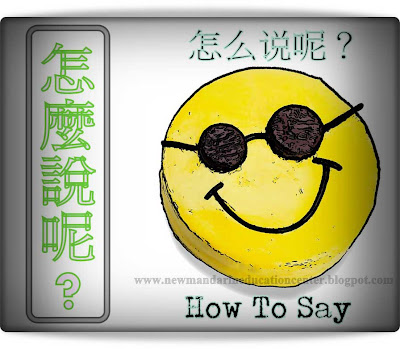Make Sentence
造句
造句
看病
Kàn Bìng = check health, check the illness.
医生帮我看病。
Yīshēng bāng wǒ kànbìng.
Doctor to help me to check the illness.
我昨天去医院看病。
Wǒ zuótiān qǜ yī yüàn kàn bìng.
I went to the hospital for health checking yesterday.
医治
Yī zhì = to cure, to heal.
医生医治不少病人。
Yī shēng yī zhì bù shǎo bìng rén.
Doctors cure many patients.
普拿疼的作用是医治头痛。
Pǔ ná téng de zuò yòng shì yī zhì tóu tòng.
Panadol [Acetaminophen] function is to heal headaches.
治疗方式
Zhì liáo fāng shì = Treatment methods; cure ways.
医生使用了不少医疗方式来治好病人。
Yī shēng shǐ yòng le bù shǎo yī liáo fāng shì lái zhì hǎo bìng rén.
Doctors use a lot of treatment methods to cure the patient.
现代的医疗方式比以前好多了。
Xiàn dài de yī liáo fāng shì bǐ yǐ qián hǎo duō le.
Nowaday treatment methods are better than before.
痛苦
Tòng kǔ = suffering, pain.
生病的时候很痛苦。
Shēng bìng de shí hou hěn tòng kǔ.
when we get sick, it is suffering.
我们要知道痛苦是无常的事儿。
Wǒ men yào zhī dào tòng kǔ shì wú cháng de shìr.
We should know that pain is impermanent.
请求
Qǐng qiú = Request; asking.
知道了有不妥之处,他请求法官复审。
Zhī dào le yǒu bù tuǒ zhī chù, tā qǐng qiú fǎ guān fù shěn.
Know that something goes wrong, he request to judge to review.
不妥之處 =
something goes inappropriate;
there's something wrong.
複審 =
to reexamine [review] the case.
市长请求总统賙济灾民。
Shì zhǎng qǐng qiú zǒng tǒng zhōu jì zāi mín.
Mayor request the President to alms the disaster victims.
賙濟 = to bestow aid or help to relieve the hardhip.
災民 = victim of disaster
要求
Yāo qiú = Requirement; request; asking
妹妹要求爸爸买给她一张书桌。
Mèi mei yāo qiú bà ba mǎi gěi tā yì zhāng shū zhuō.
little sister require [asking] father to buy a desk for her.
市长要求法官复审。
Shì zhǎng yāo qiú fǎ guān fù shěn.
The mayor asked the judge to reexamine the case.
解救
Jiě jiù = Rescue
爸爸解救了他朋友的命。
Bà ba jiě jiù le tā péng yǒu de mìng.
Father rescued his friend's life.
市长想办法解救灾民。
Shì zhǎng xiǎng bàn fǎ jiě jiù zāi mín.
The mayor think of ways to rescue the disaster victims.
想辦法 = try to find the solution, thinking the solution.
救命
Jiù mìng = save one's life.
他救了我的命。
Tā jiù le wǒ de mìng.
He saved my life.
他是这带的救命恩人。
Tā shì zhè dài de jiù mìng ēn rén.
He is the savior of this place.
恩人 = a person who significantly help.
contributor.
一句怨言
Yí jǜ yüàn yán = A complaint
做男人不要常常说一句怨言。
Zuò nán rén bú yào cháng cháng shuō yí jǜ yüàn yán.
Men do not often say complaint.
别人说一句怨言,我们要仔细听他的话。
Bié rén shuō yí jǜ yüàn yán, wǒ men yào zǐ xì tīng tā de huà.
When others say a complaint, we should listen carefully to his words.
一封信
Yì fēng xìn = A Letter
哥哥写了一封信给我。
Gē ge xiě le yì fēng xìn gěi wǒ.
My elder brother wrote a letter for me.
这一封信,你要仔细地看它。
Zhè yì fēng xìn, nǐ yào zǐ xì de kàn tā.
You should carefully read this letter.

Comments
Post a Comment